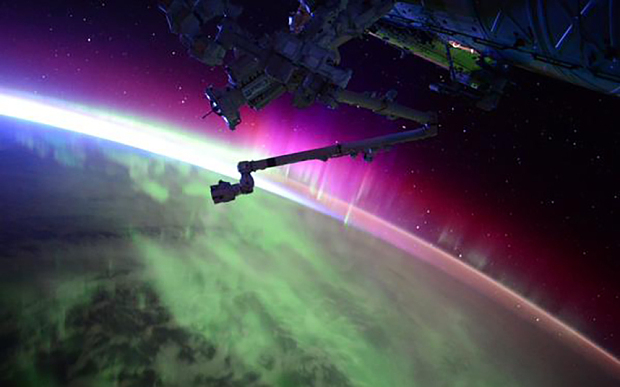Aurora space station welcomes its first guests

Aboard the International Space Station, an astronaut’s life is typically work, exercise, rest, repeat.
Aurora Station is said to be the “first hotel in space.” Houston-based Orion Span Inc. hopes to launch the modular station in late 2021 and welcome its first guests the following year, with two crew members accompanying each excursion. The platform would orbit 200 miles above Earth, offering six guests 384 sunrises and sunsets as they race around the planet for 12 days at incredibly high speeds.
Once, such a thing would have clearly been the stuff of fiction. Now, in the age of SpaceX, Blue Origin, and Virgin Galactic, the idea that a private company would launch an orbiting hotel seems almost pedestrian, journalists say.
“We’re not selling a hey-let’s-go-to-the-beach equivalent in space. We’re selling the experience of being an astronaut. You reckon that there are people who are willing to pay to have that experience,” Orion Span’s founder and chief executive officer, Frank Bunger said.
Beyond the physical limitations to embarking, there are also the financial ones.
The 12-day stay starts at US$9.5 million per person, or about US$791,666 a night. Aurora Station is planned as a 35-by-14-foot module, or roughly the interior volume of a Gulfstream G550 private jet, according to Bunger. The station would accommodate as many as four guests, plus the two crew.
Orion Span is assessing potential funding sources to get the endeavor off the ground, but won’t disclose how much it wants to raise for the project, a spokeswoman said. It reflects the type of commercial venture that’s become more common over the past decade, fueled by decreases in launch costs and an influx of venture capital. Since 2015, startup space companies have attracted US$7.9 billion in investment, according to Bryce Space & Technology LLC, a consulting firm.
Orion Span has yet to contract with a launch provider, either for its initial flights to build the station or for customer flights.
Van Espahbodi, managing partner of Starburst Accelerator LLC, a consulting and venture firm, added that the public-relations push behind Orion Span may be an effective way to help the company attract funding, too.
Orion Span’s chief architect and operating and chief technical officers are former NASA employees. The company said it’s “developed proprietary technology to drive a full order of magnitude of cost out of the design and manufacture of a space station.” Bunger said the firm’s designs would work with most of the current launch configurations, such as Arianespace, SpaceX, and United Launch Alliance. It could also partner with a government space agency, he said.
Axiom Space LLC, a Houston-based company also run by NASA veterans, said it plans to launch habitation modules to complement the ISS. Arizona-based World View Enterprises Inc. is developing a fleet of high-altitude platforms, called stratollites, carried by balloons to the edge of space. The stratollitesare used for communications, surveillance, weather forecasting, atmospheric research, and other applications.
But the new world of commercial spaceflight has yet to launch a human into space, let alone civilians and leave them there for two weeks. Prior to launch, Aurora Station travelers would have three months of training, beginning with online courses to understand “basic spaceflight, orbital mechanics, and pressurized environments in space.” Hotel guests will also have required exercises on spacecraft systems and contingency training at the company’s Houston facility.


































